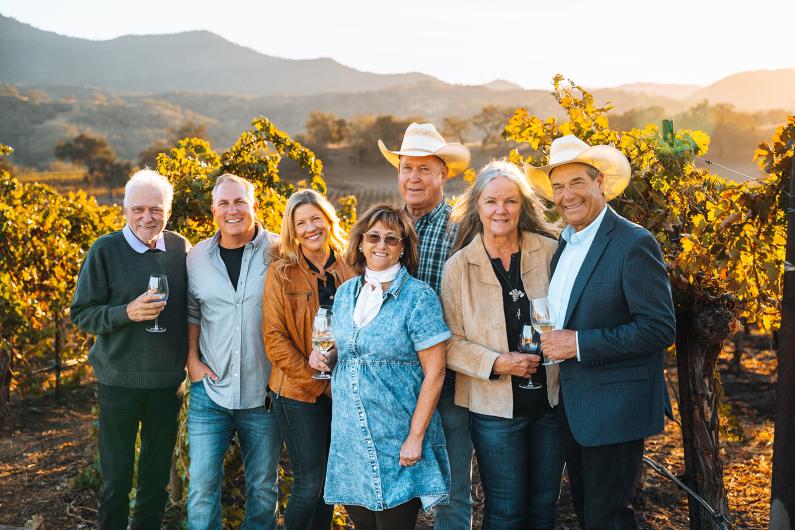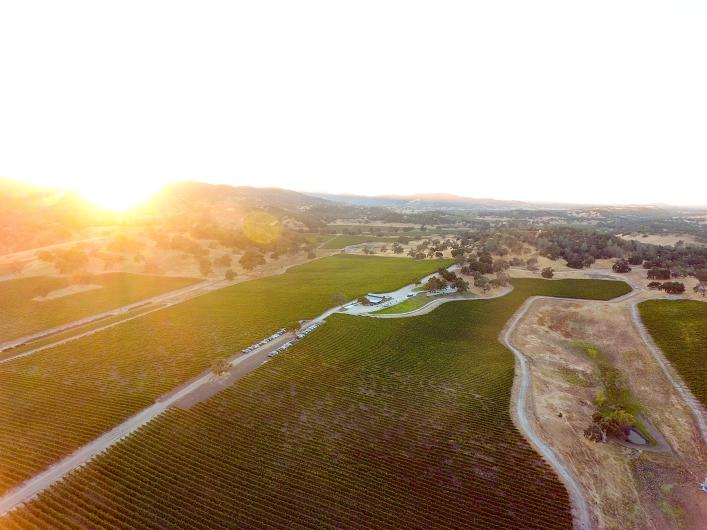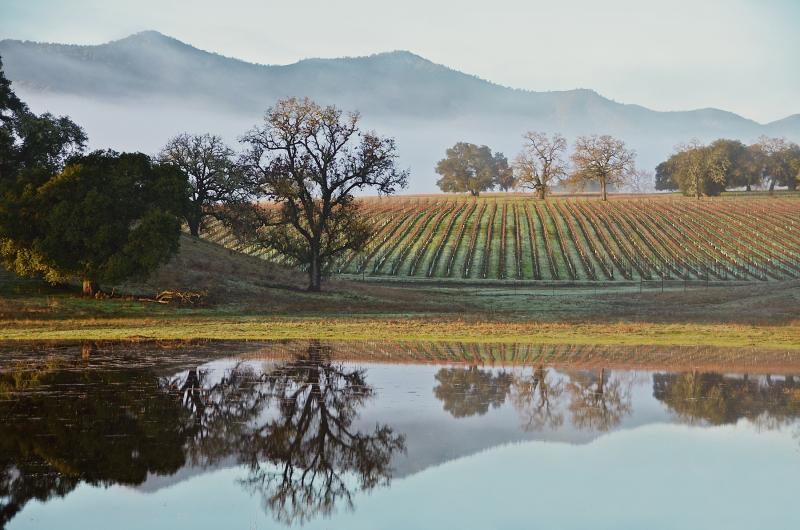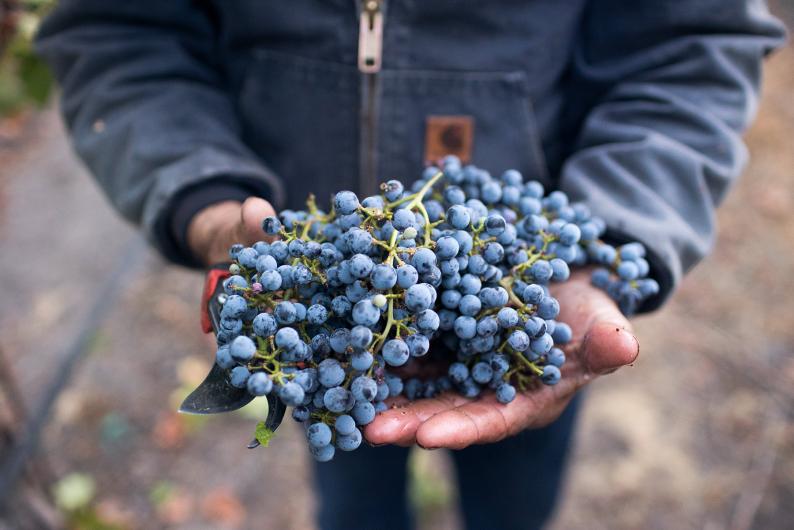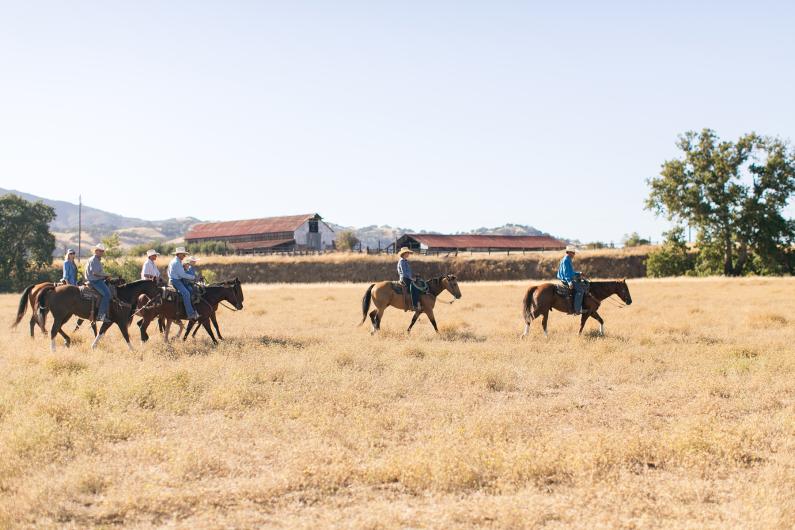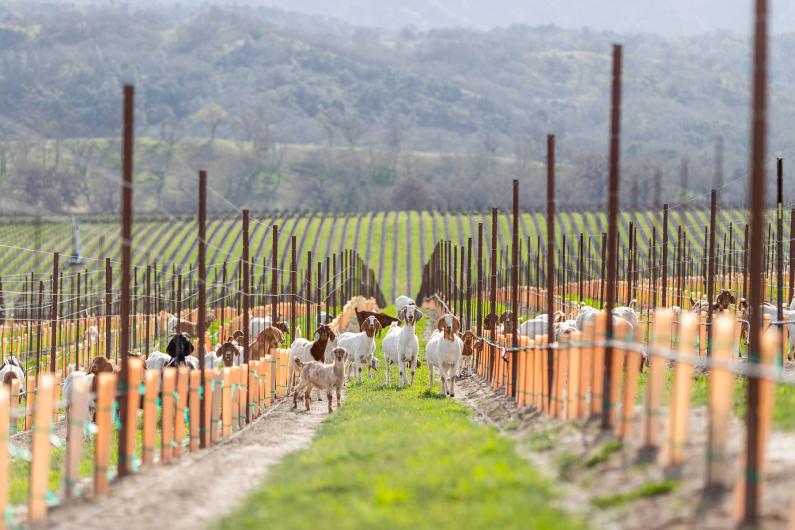Ancient Peaks
Cabernet Sauvignon
Ancient Peaks
Cabernet Sauvignon
Cabernet Sauvignon is the longtime flagship wine of Ancient Peaks, helping drive the emergence of Paso Robles as a world-class region for this classic Bordeaux variety. The Ancient Peaks Cabernet Sauvignon achieves both ripeness and balance amid one of the region’s coolest, longest growing seasons, all while drawing natural complexity from the vineyard’s uniquely complex soils.
Wine Production
Each individual block of Cabernet Sauvignon is picked at individual ripeness over a period stretching from early October to early November. After gentle destemming, the lots are cold soaked for 48 hours prior to fermentation for a smooth extraction of color and flavor. After fermentation, the lots are racked to an equal combination of French and American oak barrels, where they age for 19 months prior to blending and bottling. Small lots of estate-grown Merlot, Malbec and Petite Syrah are incorporated into the final blend for enhanced color, mouthfeel, and flavor dimension.
Tasting Notes
The Cabernet Sauvignon opens with heady aromas of black raspberry, cherry, sage, and tobacco leaf. A juicy, mouth filling texture reveals seamless layers of currant, cherry, blueberry, dark plum, and black olive with trailing hints of mocha, mineral, and eucalyptus. Suggestions of vanilla bean join soft tannins on a smooth, rounded finish.
Food Pairing
Savor the Cabernet Sauvignon with richly textured dishes such as beef tenderloin, sage-rubbed lamb chops, grilled portobello mushroom, and lamb Bolognese with parmesan and herbs.
Cabernet Sauvignon is the longtime flagship wine of Ancient Peaks, helping drive the emergence of Paso Robles as a world-class region for this classic Bordeaux variety. The Ancient Peaks Cabernet Sauvignon achieves both ripeness and balance amid one of the region’s coolest, longest growing seasons, all while drawing natural complexity from the vineyard’s uniquely complex soils.
Wine Production
Each individual block of Cabernet Sauvignon is picked at individual ripeness over a period stretching from early October to early November. After gentle destemming, the lots are cold soaked for 48 hours prior to fermentation for a smooth extraction of color and flavor. After fermentation, the lots are racked to an equal combination of French and American oak barrels, where they age for 19 months prior to blending and bottling. Small lots of estate-grown Merlot, Malbec and Petite Syrah are incorporated into the final blend for enhanced color, mouthfeel, and flavor dimension.
Tasting Notes
The Cabernet Sauvignon opens with heady aromas of black raspberry, cherry, sage, and tobacco leaf. A juicy, mouth filling texture reveals seamless layers of currant, cherry, blueberry, dark plum, and black olive with trailing hints of mocha, mineral, and eucalyptus. Suggestions of vanilla bean join soft tannins on a smooth, rounded finish.
Food Pairing
Savor the Cabernet Sauvignon with richly textured dishes such as beef tenderloin, sage-rubbed lamb chops, grilled portobello mushroom, and lamb Bolognese with parmesan and herbs.
Brand Materials
Vineyard & Production Info
Winemaking & Aging
Analytical Data
About the Vineyard
The grapes for the Cabernet Sauvignon span a range of diverse Cabernet Sauvignon blocks from across Santa Margarita Ranch, collectively planted to soils of calcareous ancient sea bed, Monterey shale and rocky alluvium. These blocks feature many of Margarita Vineyard’s original mature plantings as well as multiple new blocks and clones, including the new Quarry section of the vineyard. These different blocks, clones and soil profiles combine to create a naturally complex and multi-layered estate Cabernet Sauvignon with a signature mingling of red and black fruit flavors. Margarita Vineyard stands alone as the southernmost vineyard in the Paso Robles region, nestled into the rugged Santa Lucia Mountain range just 14 miles from the Pacific Ocean in the new Santa Margarita Ranch AVA. The mountain peaks act as a gateway for cool marine air, resulting in an extended growing season that yields fruit with uncommon depth and structure. The peaks are also testaments to the tectonic forces that created Margarita Vineyard’s rare diversity of soils, ultimately creating natural complexity in the wines.
